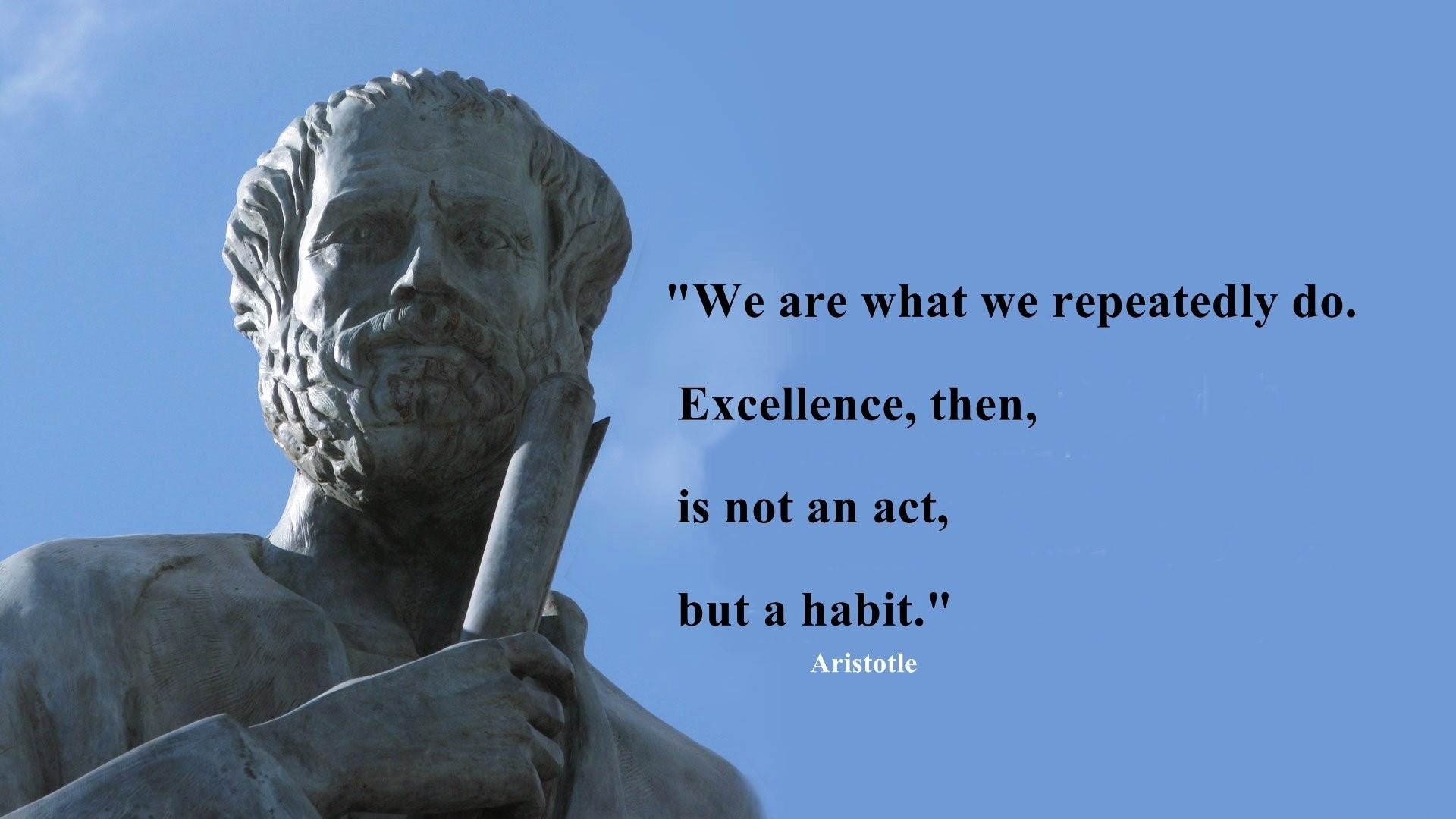I recently had a wide-ranging conversation with Aristotle. The fascinating part was that all of his answers tracked verbatim with thoughts he expressed 2,300 years ago.
MG: It’s an honor to meet you, Aristotle. I really appreciate your taking the time.
A: Even in adversity, nobility shines through, when a man endures repeated and severe misfortune with patience, not owing to insensibility but from generosity and greatness of soul.
MG: Ouch. Touché. So we’ve just entered a new decade. I’m wondering if you have any thoughts on contemporary society in 2020.
A: It is during our darkest moments that we must focus to see the light.
MG: It sounds like you might be taking a hard turn there into politics.
A: The self-indulgent man craves for all pleasant things… and is led by his appetite to choose these at the cost of everything else.
MG: Well, without making any hard I.D.s on that point, let’s explore it a bit. Politicians on the national stage have been focusing on how our modern economy brings wealth to only a tiny fraction of Americans. Thoughts?
A: As for the life of money-making, it is one of constraint, and wealth manifestly is not the good we are seeking, because it is for use, that is, for the sake of something further.
MG: In that case, I think a lot more folks would like to be “useful!”
A: The good of the individual by himself is certainly desirable enough, but that of a nation and of cities is nobler and more divine.
MG: Let’s stay on that “nation” thing. Recently we’ve seen dramatic events at the highest level of our country’s government. Any thoughts on the House and Senate impeachment proceedings?
A: At his best, man is the noblest of all animals; separated from law and justice he is the worst.
MG: It seems to have caused a lot of Americans to question the future of our democracy. Any advice for our citizenry?
A: Excellence is an art won by training and habituation. We do not act rightly because we have virtue or excellence, but we rather have those because we have acted rightly. We are what we repeatedly do. Excellence, then, is not an act but a habit.
MG: Hard to argue with that. But perhaps some bigger picture advice?
A: All who have meditated on the art of governing mankind have been convinced that the fate of empires depends on the education of youth.
MG: We’re definitely simpatico there. No one gives me more hope than my students. So we’ve touched on the economy and education. Any thoughts on climate change?
A: All earthquakes and disasters are warnings; there’s too much corruption in the world.
MG: So we’ve come back to the problem of corruption. That issue seems to trouble you most. How do we fix it?
A: Virtue lies in our power, and similarly so does vice; because where it is in our power to act, it is also in our power not to act.
MG: I think I understand. Though you must admit that wording’s a bit convoluted coming from one of history’s greatest philosophers.
A: Philosophy can make people sick.
MG: Touché again. It’s nice that you’re able to exhibit such humility after all these centuries. Still, you must be proud of the impact you’ve had on generations.
A: Pleasure in the job puts perfection in the work.
MG: Roger that. Do whatcha love. Thank you, A-Train. This has been terrific. Your thinking always leaves me a little wiser.
A: The pleasures arising from thinking and learning will make us think and learn all the more.
MG: Food for thought.


